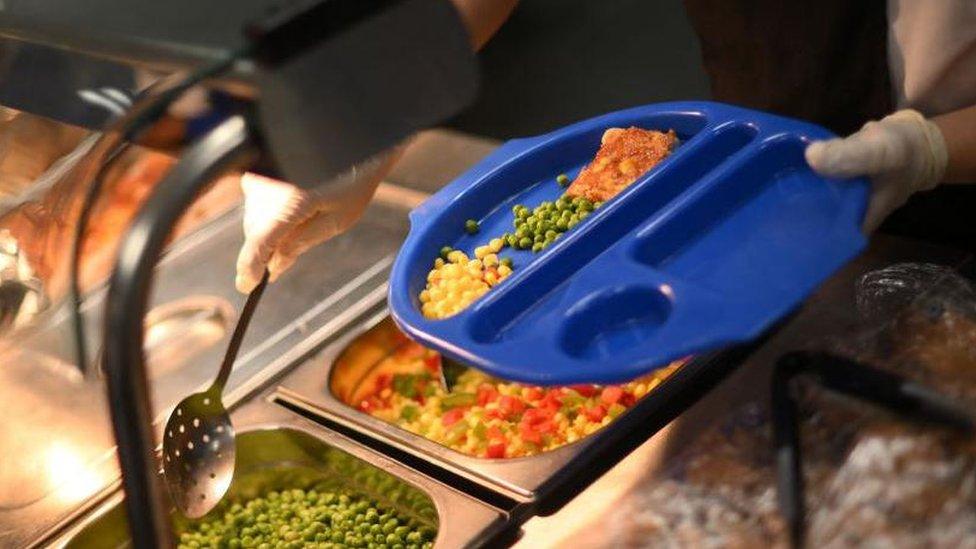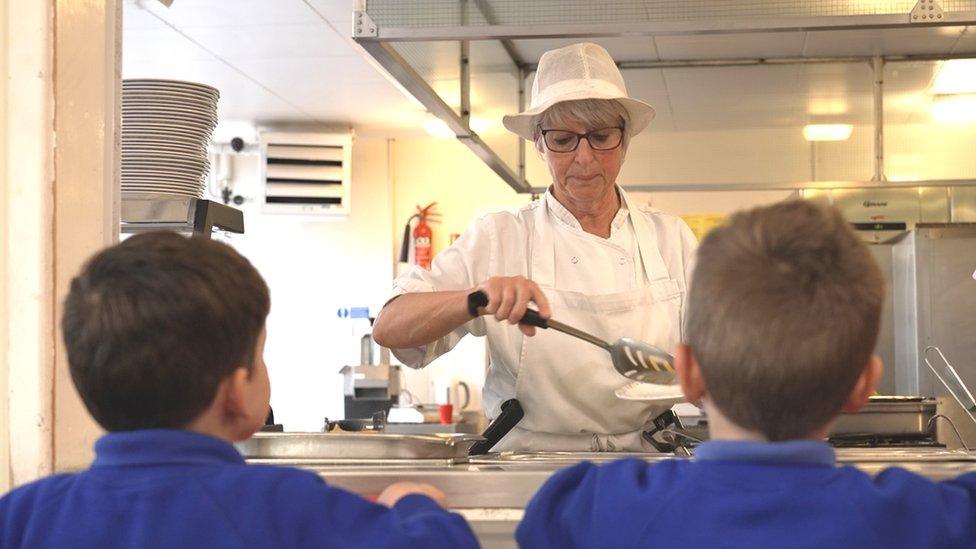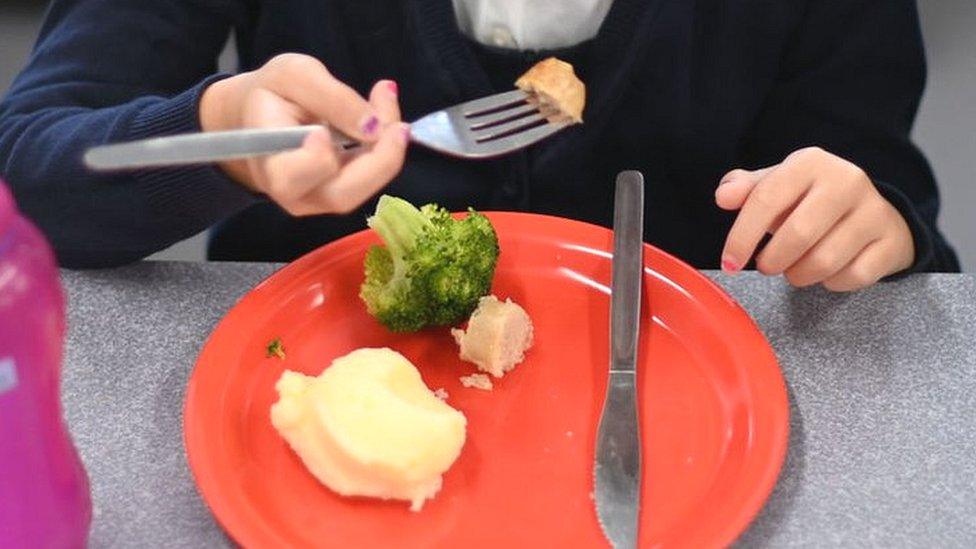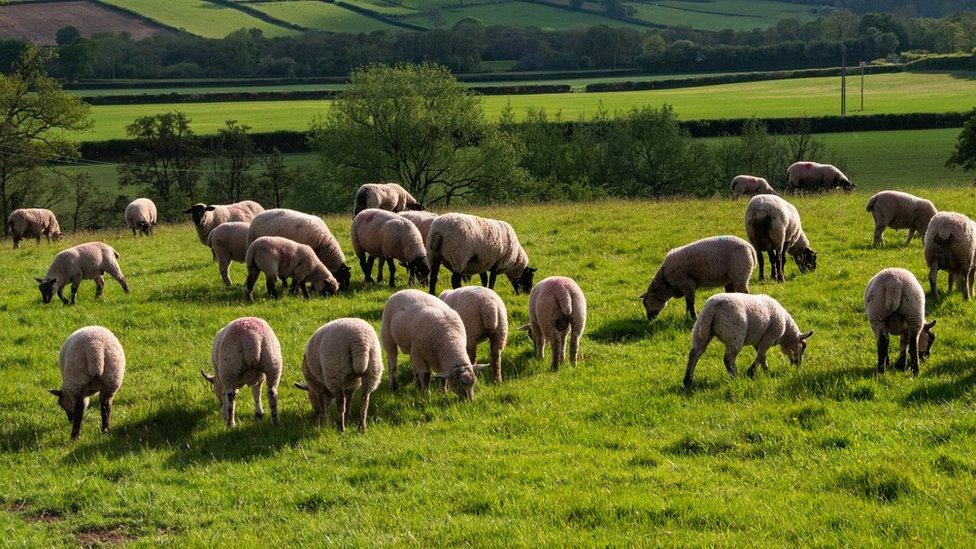Wales' holiday free school meal axe faces legal challenge
- Published

Legal charity Public Law Project claims ministers did not consider how to reduce the impact on poorer families
A controversial decision to scrap free school meal help in Wales during the holidays could end up in the courts.
A legal charity acting on behalf of an asylum-seeking single mother in Cardiff is mounting a legal challenge.
The parent has said the decision left her in "shock" and that ministers should have given families more time to prepare.
The Welsh government said it is considering its response.
The Public Law Project (PLP) says the decision was taken at short notice and might be unlawful because ministers did not think about how to reduce the impact on disadvantaged people.
It disputes the Welsh government's claim that ministers made a decision in March, and said the Welsh government left parents "in the lurch".
The lawyers called for the scheme to be reinstated pending an impact assessment and consultation - failing which it says the claimant will apply for judicial review in court.
Welsh ministers have said the money that paid for the service - which began during the pandemic - no longer exists, and that it was only a time-limited response to Covid.
Its thought it would cost £15m to pay for free school meals over the school holidays. Four councils have decided to continue paying for the scheme from their own funds.
'These vouchers are vital'
The parent behind the action, who the charity have identified only as "Nadia", said she "went into shock just looking at the email" telling her the payments would end.
In quotes provided by the charity, she said: "These vouchers are vital for feeding my two children.
"My brain is working 24/7 trying to figure out how I'm going to make this work. I already buy the absolute basics and the cheapest stuff, but I don't know how much lower I can go.
"They should have given us at least a few months to prepare for this - I would have been better prepared to help myself and my children."
The charity said that Nadia has an income of between £120-125 per week.
The vouchers provided by the scheme every two weeks - worth £20 per child or £40 during summer months - were a "significant relative increase" in Nadia's income, the letter said.
'It's the worst time'
Sarah Taylor, who lives in Rhondda Cynon Taf and has three daughters, said she is reliant on benefits due to ill health.
She said the free school meals payments over the holidays have been a "lifeline", and that losing them is "making life harder".
Ms Taylor, who is not a part of the legal action, said the decision meant there was less money to spend on days out and activities for her children, and takes away cash she has for paying rising utility bills which she is in arrears for.
"It's just taking away our ability to buy the food that we choose to buy," she said.
Ms Taylor said there was very little notice the payment were ending - she said she found out from a message from one of her children's schools on 10 July. She called the decision to scrap the payments "horrific".
"I can't understand why they took away that lifeline right now. It's the worst time," she said.
What do the lawyers say?
PLP's lawyers dispute the Welsh government's claim it made the decision in March, when it was extended only to the end of the May half-term holiday.
In a letter to Education Minister Jeremy Miles, PLP said no announcement had been made or indication given that this was the final extension to the scheme.
Councils were told on 28 June that there would definitely be no funding over the holidays, after officials had "fully explored" options for funding a further extension.
The letter said there is no evidence ministers have complied sufficiently with its duties under the Equality Act.

PLP's Matthew Court said free meals are "vital" to ensure children are properly fed
It says ministers are required to, when making decisions of a "strategic nature", consider how to do them in a way that reduces inequalities for people suffering from socio-economic disadvantage.
PLP solicitor Matthew Court said: "Every government must sometimes make difficult and unpopular decisions, particularly when resources are limited.
"But the question is, should they do so without considering the impact on vulnerable people, especially when that means scrapping a service that is vital to ensure children are properly fed?"
A Welsh government spokeswoman said: "A pre-action letter outlining a proposed judicial review has been received in relation to the provision of free school meals over the school holidays.
"The Welsh government is considering its response."

BINGE-WORTHY BOX SETS: A collection of incredible dramas made in Wales
RELAX WITH RADIO WALES: Our go-to playlist to relax, unwind, and chill out

Related topics
- Published20 July 2023

- Published11 July 2023

- Published24 July 2023
